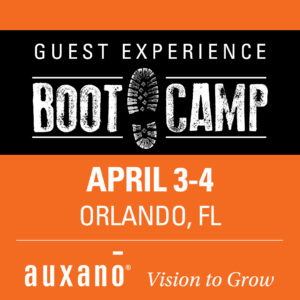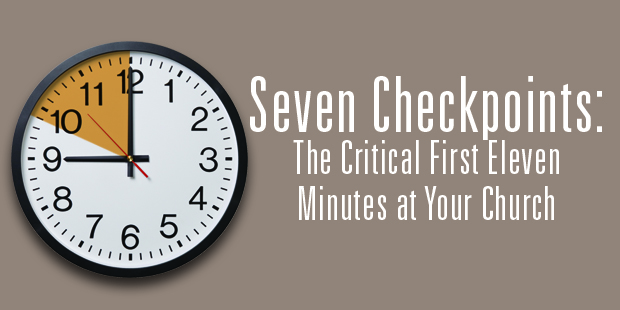
Can You Handle the Truth? 3 Reasons Your Guests Aren’t Returning
All pastors know the feeling. A new couple visits on a Sunday morning. Maybe they just moved to the area and they are looking for a church, or a friend invited them, or they decided to give church a try. They seem really sharp, exactly the demographic you are trying to reach. You have a great conversation in the lobby. They promise to be back next week, but they’re not. They never come back.
Another family comes three weeks in a row. Each weekend you see them in the lobby after church and it seems like they are really connecting. They miss the fourth week, but they’re back on the fifth. And then they never come back.
What happened? Why didn’t these families connect? Why do so many people flow through your church without sticking? You’ve read the books, been to the conferences and tried everything you can think of, but the back door of your church is always wide open. What is going on?
While I haven’t been to your church, or if I have let’s pretend I haven’t, I have visited scores of church across the country and I know why many people don’t stick. Sometimes the music is really bad or the preaching is really boring or the children’s ministry is really awful, but there are other, less obvious, reasons people don’t return:
1. Your church is a Members Only club
I can hear your reaction from here, “Not us! We work very hard to be inclusive. We go out of our way to welcome visitors; we even invite them to a monthly reception to show them how welcome they are. Swing and a miss on this one, cheesy boy.” (I don’t know why you are calling me “cheesy boy”, but I could use a nice slab of sharp cheddar about now)
Actually the more you think you’re not a members only club the more likely you are. Guests are just that, guests. They are welcome to watch and even participate, but they are not a part of the club. Walking into the church is like walking around in a foreign country. There are signs with clever labels like “Treasure Cove”, “Warehouse” and “Waves” that mean absolutely nothing to the outsider. Your announcements are laced with insider language about ministries and programs that everyone, wink-wink-nod-nod, already knows about. Sermons are filled with inside jokes and references to individuals that an outsider knows nothing about. You even have special shirts and name badges to clearly delineate who belongs and who does not.
The effort required to learn your language, understand your references and get to know your members is just too challenging for the new attender, so they don’t come back. You don’t mean to be a members only club, you just are.
2. Your church doesn’t care about details
The first time attender showed up a few minutes after your website said your services start because they wanted to sneak in the back, but when they arrived the band wasn’t even on stage. The auditorium was almost empty when they sat down, which made it easy for the pastor to find them. He explained that the congregation is notoriously late, but the service will start in a few minutes.
During service the guest noticed that the words were wrong on some of the slides, and there were several typos in the bulletin. On they way out to the car they noticed the pile of junk on a table in the corner, seemingly the same pile of junk that was there when they visited last Christmas. In the parking lot the overgrown flower beds seemed to emphasize the message, “We do the least we can.”
The new attender can’t help but wonder why the church leaders care so little about details. Maybe that’s the way they treat people as well? Its not really worth the effort to find out.
3. Your church is full
There may be room in the parking lot and the auditorium, but everything else is full. Your small groups are closed, but you have new ones starting the fall if the new attender wants to come back in a few weeks. Your ministry teams are full unless the new attender wants to wipe babies butts, in that case there’s an opening today. Your leader’s slate of relationships is full; they’ll meet with the new attender, but they reached their quota of friends a few months ago. There’s a place to park and a place to sit, but there’s really no place to belong.
This is confusing and a little embarrassing for the new attender. At least when hotels are full they put out a no vacancy sign; your church talks like they have plenty of room even though every available slot, or at least desirable slot, is full. Maybe they’d be better off sticking with meetup.com to find new connections, there’s always room there.
Have you ever visited a church and then didn’t go back? What are top two or three reasons you didn’t return?
Read more from Geoff here.
Want to know more about Guest Experiences in your church? Start a conversation with our team. We’re glad to offer our input. Your vision is at stake, so let’s talk.

Want to learn how to create an EXCEPTIONAL Guest Experience at your church? Check out Auxano’s Guest Experience Boot Camp, coming to Orlando, FL on April 3-4.

Tags: Assimilation, Connect, Guest Experience, Guest Service, Worship

































